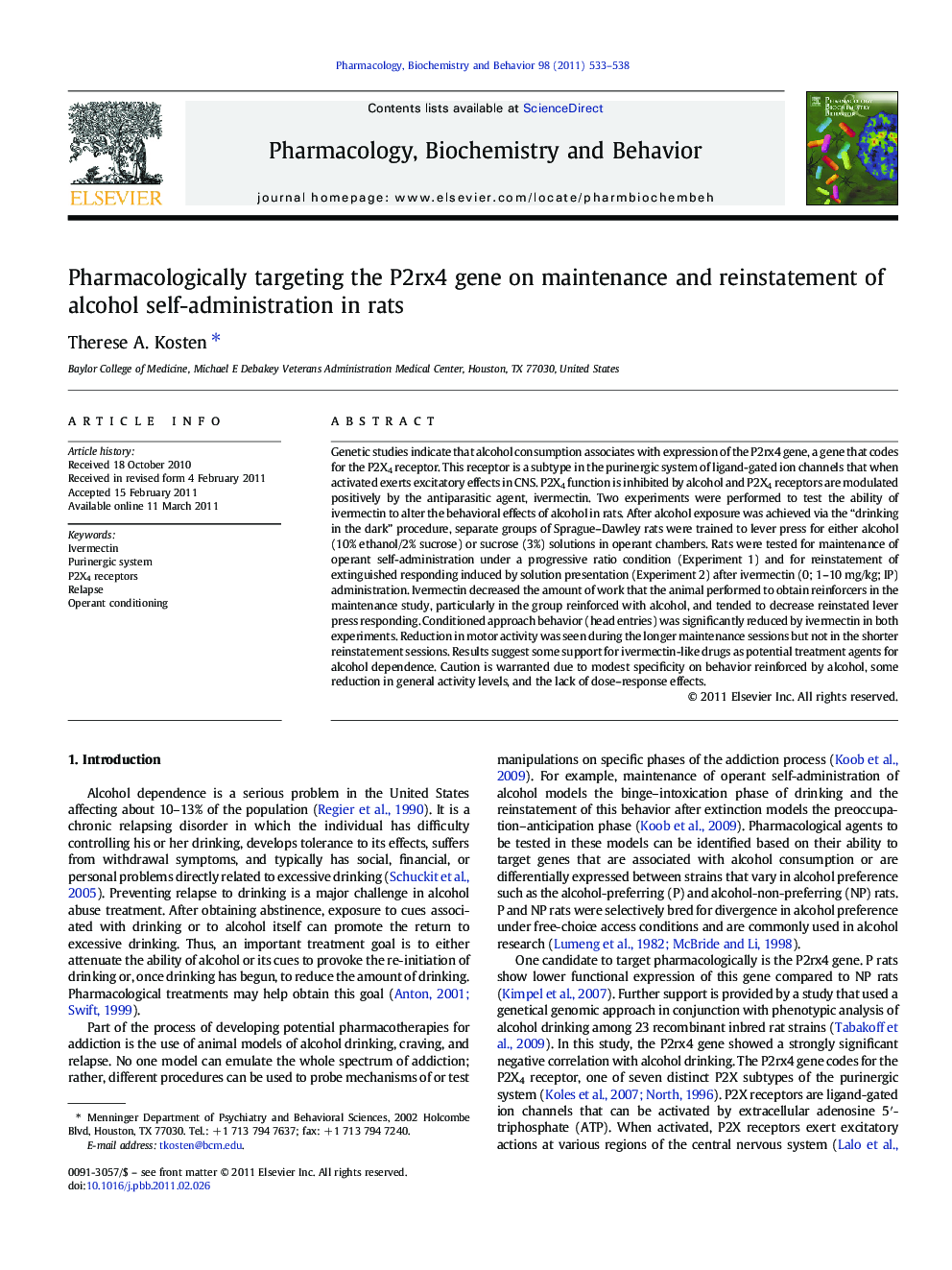| Article ID | Journal | Published Year | Pages | File Type |
|---|---|---|---|---|
| 2013351 | Pharmacology Biochemistry and Behavior | 2011 | 6 Pages |
Genetic studies indicate that alcohol consumption associates with expression of the P2rx4 gene, a gene that codes for the P2X4 receptor. This receptor is a subtype in the purinergic system of ligand-gated ion channels that when activated exerts excitatory effects in CNS. P2X4 function is inhibited by alcohol and P2X4 receptors are modulated positively by the antiparasitic agent, ivermectin. Two experiments were performed to test the ability of ivermectin to alter the behavioral effects of alcohol in rats. After alcohol exposure was achieved via the “drinking in the dark” procedure, separate groups of Sprague–Dawley rats were trained to lever press for either alcohol (10% ethanol/2% sucrose) or sucrose (3%) solutions in operant chambers. Rats were tested for maintenance of operant self-administration under a progressive ratio condition (Experiment 1) and for reinstatement of extinguished responding induced by solution presentation (Experiment 2) after ivermectin (0; 1–10 mg/kg; IP) administration. Ivermectin decreased the amount of work that the animal performed to obtain reinforcers in the maintenance study, particularly in the group reinforced with alcohol, and tended to decrease reinstated lever press responding. Conditioned approach behavior (head entries) was significantly reduced by ivermectin in both experiments. Reduction in motor activity was seen during the longer maintenance sessions but not in the shorter reinstatement sessions. Results suggest some support for ivermectin-like drugs as potential treatment agents for alcohol dependence. Caution is warranted due to modest specificity on behavior reinforced by alcohol, some reduction in general activity levels, and the lack of dose–response effects.
Research Highlights► Ivermectin attenuates responding for alcohol under a progressive ratio schedule. ► Ivermectin tends to diminish alcohol-induced reinstated responding. ► Ivermectin decreases conditioned approach behavior.
